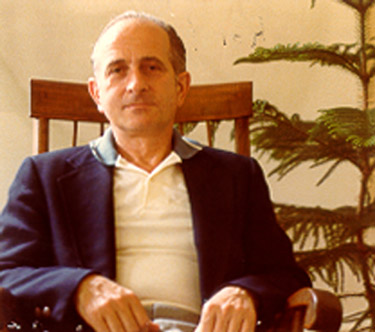 I stumbled across a small set of chapbooks called Bloodaxe Poetry Introductions edited by Neil Astley in the UC stacks the other morning. The first one I opened had several interesting poets new to me, including a German, a Czech, and a Romanian poet. Thinking about the poetry of Eastern Europe, one has to take into account the forces of invasion, dictatorship, and the repression of the state. A quote from a translator of Miroslav Holub, the Czech poet, highlights the latter:
I stumbled across a small set of chapbooks called Bloodaxe Poetry Introductions edited by Neil Astley in the UC stacks the other morning. The first one I opened had several interesting poets new to me, including a German, a Czech, and a Romanian poet. Thinking about the poetry of Eastern Europe, one has to take into account the forces of invasion, dictatorship, and the repression of the state. A quote from a translator of Miroslav Holub, the Czech poet, highlights the latter:
Eward Osers, recalls how Czech authorities ‘always had an uneasy feeling that in his surrealist way, Holub might be poking fun at them. When in one of his poems he spoke of “a crowd of dwarves [applauding] in the king’s palace” he was somewhat to his surprise summoned to the censor’s office. It turned out that many of the members of the Communist Party Central Committee were rather short and that passage would therefore have to be changed.
In the western world, we really don’t have to consider censorship, except self-censorship. Poetry has very little practical impact. Poetry in the west is basically ignored–the political and cultural weight that causes the Central Committee to ask that a passage be changed just doesn’t apply here. No one goes to jail here for what they say. No one, like Mandelstam, is exiled and eventually dies in a camp for his work.
And for poets who achieve recognition here–that is, that their poetry is widely read and praised–that recognition can be a kind of trap, counter to the intensely personal process of writing. The poet begins writing what the audience wants, and there is nothing worse for the creative process than that.
Holub was also a well-respected immunologist, and had this to say about his work:
 “I prefer to write for people untouched by poetry… I would like them to read poems in such a matter-of-fact manner as when they are reading the newspaper or go to football matches. I would like people not to regard poetry as something more difficult, more effeminate, or more praiseworthy.”
“I prefer to write for people untouched by poetry… I would like them to read poems in such a matter-of-fact manner as when they are reading the newspaper or go to football matches. I would like people not to regard poetry as something more difficult, more effeminate, or more praiseworthy.”
An interesting aesthetic. In any case, here’s a short poem of his from 1961.
A helping hand
We gave a helping hand to grass–
and it turned into corn.
We gave a helping hand to fire–
and it turned into a rocket.
Hestatingly,
cautiously,
we give a helping hand
to people,
to some people…
Miroslav Holub